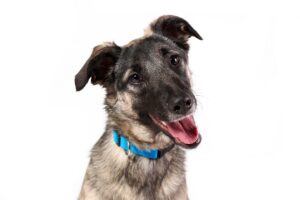
Learn about gingival hyperplasia with Mount Carmel Animal Hospital!
Have you recently noticed your dog’s gum tissue excessively growing? This is due to gingival hyperplasia, a condition provoked by an increase in the number of cells within the gums. In honor of pet dental month, Mount Carmel Animal Hospital, based in Baltimore County, shares information regarding gingival hyperplasia in dogs.
What is It?
Most commonly observed in Boxer Dogs, Bulldogs, and Cocker Spaniels, gingival hyperplasia is an abnormal, but benign, growth or thickening of gum tissue. The hyperplasia is due to inflammation from bacteria or plaque and can occur secondary to certain medications. Although the cells grow at an abnormal rate, there is no significant change in cell structure or size. Thus, the cells generally remain normal and non-cancerous.
Gingival hyperplasia in your dog often begins around middle age. It starts in one gum area and thoroughly covers your dog’s teeth. One of our veterinarians can inspect your pet’s mouth and gums during their annual exam. They will also review the color of the gums and determine any inflammation, redness, or overgrowth.
The Cause
The underlying cause of most cases of this condition still needs to be fully understood. Veterinarians suspect gingival hyperplasia has a genetic component, triggering some dogs to respond to inflammation or bacteria with excessive gum tissue growth instead of the more typical gum recession. Less commonly, the hyperplasia might occur through the use of certain medications. An example is Cyclosporine, an immunosuppressive drug that’s used to manage allergic and autoimmune diseases.
Treatment
If your pet demonstrates excessive growth or thickening of gum tissue, he or she may have gum hyperplasia. The enlargement of the gums produces a pocket that can result in bone loss and infection. If left untreated, it often leads to discomfort or periodontal disease in dogs.
A Mount Carmel Animal Hospital veterinarian can try to change the medication to see any relief if your dog’s condition is medication-related. For the majority of cases that are not caused by medication, we may perform a thorough teeth cleaning to remove the tartar and bacteria causing the inflammation. We may also send your pet home with oral antibiotics to further treat any infection. For severe cases, your dog might need surgical repair to eliminate the excess gum tissue. If this is required, your dog will likely need to only chew soft foods after surgery to allow the gums to heal. We recommend that you take your dog for routine dental cleanings once a year to maintain excellent oral hygiene habits.
HERE AT MOUNT CARMEL ANIMAL HOSPITAL, WE’LL TREAT YOUR PETS LIKE FAMILY!
Mount Carmel Animal Hospital has been serving the Northern Baltimore/Southern York community for over 30 years and is proud to be an independently operated, small animal practice committed to excellence in veterinary medicine and client service. From grooming to wellness services, along with Canine Life Skills Training Courses, and surgical procedures, we have the expertise that will best serve the needs of you and your pet. Contact us at 410-343-0200 and follow us on Facebook!
